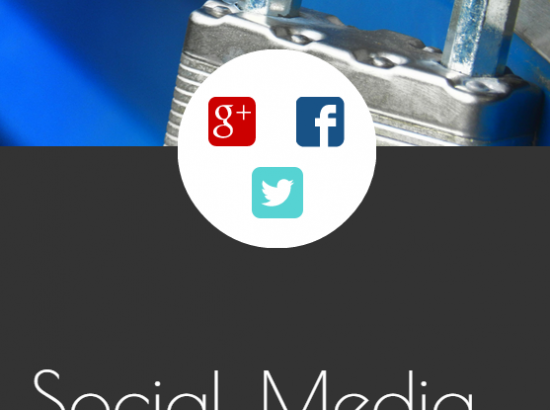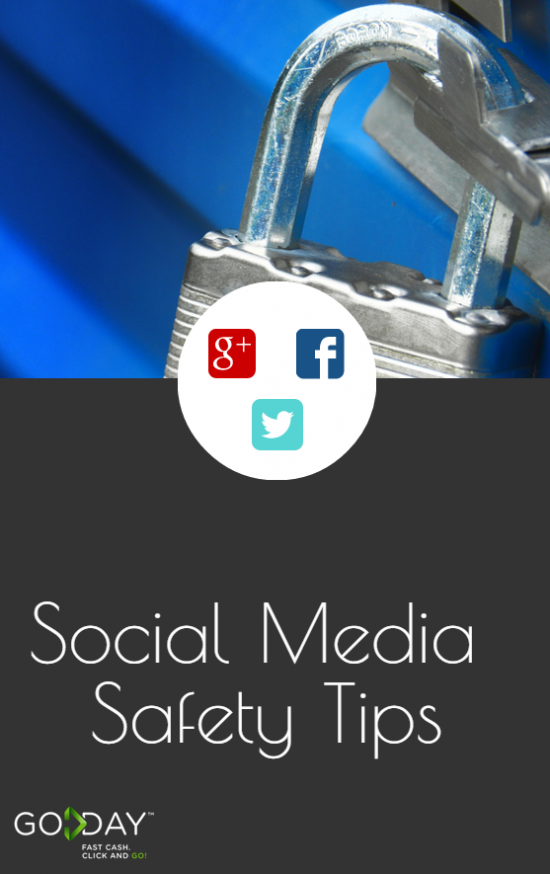Payday Loans | GoDay.ca
Heavy social media users are generally a little bit savvy about what information about themselves that they put online, but statistics show that the older a user is, the more they’re likely to giveaway. The idea that “once it’s online, it’s there forever” is a certainty, and some make the mistake in thinking that if a piece of information is deleted, it’s then removed. The jury is out on what information is indeed “there forever”, so we want to help keep you as safe as possible while using Facebook, Twitter & whatever other social media tool you have at your disposal. Check out the following list of social media privacy faux pas and perhaps consider reviewing your accounts to make sure yours is as secure as possible!
Going on vacation? Wait until you get back to post anything about it.
Sure, it might be cool to “check in” at the airport, but this is one thing that most social media users do without realizing the potential danger. By posting anything about going on vacation, whether it’s for a few days or a week, it’s sending the message that your house is potentially empty. This information might be safe with your friends, but depending on yours (and their) privacy settings, simply “liking” your post that you’re going to the Bahamas for two weeks can open up visibility to people you don’t even know.
What should you do? Play it safe and wait until you return to post anything about your vacation. You can always back-date posts and check-ins if you really want to. Even better? Continue posting as if you were at home. Don’t make it seem like anything was out of the ordinary. Your friends and family will understand, and they’re probably the only ones who would know about it outside of social media anyways.
Leave off your address & maybe even your birthday.
Identity thieves can do a lot with your full name, address and birthday. It should be common sense to not include your address on anything unsecured, but some older Facebook users are guilty of this piece of “too much information”, generally because it’s the understanding that “once upon a time” we had our addresses and names in phone books (but maybe it wasn’t such a great idea then, either).
There are users who have created their home as a “check in” place – don’t ever, ever do this. It doesn’t matter if your profile is on lock-down and only you and certain lists of people you designated can see it. Remember the rule, “once it’s online, it’s there forever“. Keep it off for good by never putting it up in the first place.
Additionally, you may want to consider removing your birthday all together, or only making the date and month visible.
Consider making an alter-ego for yourself, or use your first name and a fake middle name.
We’re not talking about full-on “cat-fishing” but if you’re worried about your identity online, consider an alter-ego. Alternatively, a growing trend among millennial’s is to use their first name and their middle name on their Facebook profiles. The reasons for this vary. Sometimes it’s to prevent people who knew them in the past from finding, or “stalking” them, sometimes it’s for protection from snoops in general. This practice is increasing on professional social networking site LinkedIn as well, with users posting only their first name and last initial.
More is not necessarily better.
Your LinkedIn network might be big, and that might be just fine, but if you have hit the limit on your Facebook friends (5,000), you might want to consider doing a little filtering. Are you really talking to 5000 people regularly? Do you really need to be updating them about your very personal things every single day (or multiple times a day)? If it’s part of your job, that’s one thing, but then you generally have a business or brand page, or a blog to do this through. Again, this goes back to the privacy settings of those 5000 people and any activity they have on your own profile. The rule of thumb is keeping your friends lists to people you see regularly & your family. And there isn’t any rule that says you have to have your colleagues or your employees on Facebook. That’s what LinkedIn is for.
Keep videos of your house offline.
You’re basically providing a welcome mat for any potential burglar. Not only could they scope out the valuables in your home, but they could also prepare a very detailed plan to execute if they come to your door. Don’t even risk this for your personal friends. Again, you don’t know what their privacy settings are like so please, be safe. Be aware, specifically, of social events in your home. If your friends took picture or video, discuss whether or not you’re comfortable with them posting it. You have even less control on their profile than you have on yours.
Be preventative. Google yourself.
It’s a good idea to see how you appear “publicly” & it gives you a chance to reign it in if necessary. Is your LinkedIn profile more public than you want? Can people see your pictures from Facebook or Google+? If these things are a concern for you, make sure to do frequent checks on yourself. Many employers will now search for you before they even call you for an interview, so make sure your internet reputation is spotless (or non existent if you so choose).
Vent about your job off of social media.
Just like your future potential employers can see what you’ve been up to online, your current one can also see if you’re “unhappy” with your current position. There are frequent stories of social media users being fired for complaining about their work, giving away confidential information about their job or calling their bosses names or defaming them in some way. You may have a legitimate complaint, but protect yourself (and maybe your job) by keeping it offline.
Protect your kids. Leave those photos off.
Yes, it’s easy to share baby pictures & adorable event pictures with your family via social media, but if your profile is not secured, anyone can get those pictures. You get the idea. If you absolutely have to post pictures of your little ones, please make specific visibility lists including only those specific people you want to see. But better yet, just email your friends and family directly. Or print them off and mail them. In this case, the old fashioned way may be best.
Clear your cache & don’t use public computers.
Unless you know the computer or device inside out & trust it fully (it’s yours or a trusted friends) do not access your social media or any private information from any public computer or untrusted device. You have no idea if the device has malware on it that could take your information without your knowledge.
As for your own computer or mobile devices, some people like having their browsers store their information. However, in the event that it’s lost or stolen, the potential thieves now have a goldmine of data on you. Sign out every single time or program your browser settings to clear your cache every time you exit your browser.
Happy posting!




